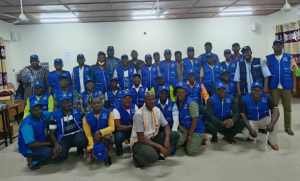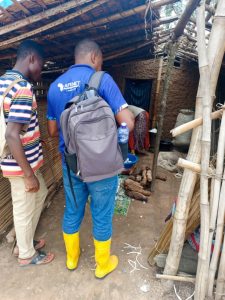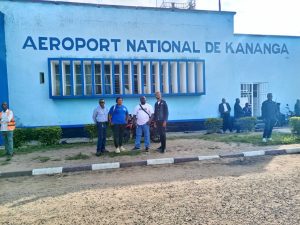AFENET Board Chair Dr. Lazarus Kuonza Opens Regional One Health Mentors Workshop with a Call to Strengthen Cross-Sector Collaboration
-
by
AFENET
June 4, 2025 – Southern Africa Region
Dr. Lazarus Kuonza, Chair of the AFENET Board of Directors and Director of the South Africa Field Epidemiology Training Program (SAFETP), officially opened the Regional Mentors Workshop for the One Health-focused Frontline Field Epidemiology Training Program (FETP). The event brings together mentors from across the Southern Africa region to explore the newly revised One Health Frontline FETP curriculum and strengthen mentorship capacities in applied public health training.
In his opening remarks, Dr. Kuonza warmly welcomed participants—distinguished guests, esteemed mentors, colleagues, and implementing partners—thanking them for their dedication and presence.
“Your presence is a clear sign of your commitment—not just to the program—but to the health and wellbeing of your countries and our region,” he said.
A Legacy of Building Public Health Capacity
Since its establishment in 2005, AFENET has partnered with ministries of health, universities, public health institutions, and global partners such as the World Health Organization (WHO), U.S. Centers for Disease Control and Prevention (CDC), and Africa CDC. Through these collaborations, AFENET has supported the implementation of FETPs in 38 countries, covering all three tiers—Frontline, Intermediate, and Advanced—under the common goal of developing a skilled public health workforce capable of detecting, responding to, and managing public health threats.
A Critical Moment for One Health
Dr. Kuonza emphasized the growing relevance of the One Health approach, pointing out that over 60% of emerging health threats are zoonotic—originating from animals or the environment and spilling over into human populations.
“We’ve seen it with COVID-19, with anthrax, avian flu, and other outbreaks that transcend borders and disciplines. If we’re going to meet these challenges head-on, our surveillance and response efforts must be integrated, coordinated, and cross-sectoral,” he said.
Advancing One Health Training
The workshop marks the introduction of the revised One Health Frontline FETP curriculum in the Southern Africa region. This curriculum, previously piloted in Kenya, Iraq, and Cameroon, features enhanced case studies, practical exercises, and a broader lens that includes veterinary and environmental health in addition to human health.
Participants will not only engage with this updated content but will also shape how it is delivered to future trainees. Dr. Kuonza emphasized the pivotal role of mentors in this process.
“You are the bridge between the curriculum and the future public health workforce. The way you guide, support, and inspire learners will determine how well this new approach lands and spreads across the region.”
A Call for Active Participation and Collaboration
Dr. Kuonza encouraged participants to engage deeply during the workshop—asking questions, sharing experiences, and learning from one another.
“This space is built for that kind of exchange. Let’s also use this time to build relationships—not just across ministries, but across countries and sectors. Because the more connected we are, the better we can respond together when the next public health threat emerges—and it will.”
In closing, he expressed appreciation for the support of key partners, including CDC, JHPIEGO, and various ministries of health, while reiterating that the long-term success of the One Health initiative depends on the commitment and collaboration of mentors and local stakeholders.
“Thank you again for being here. I look forward to a great week of learning, teaching, and connection. Let’s make it count.”



